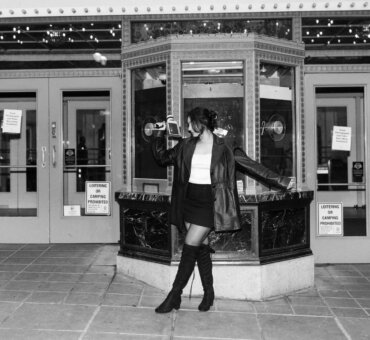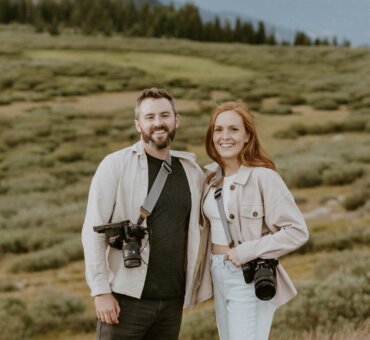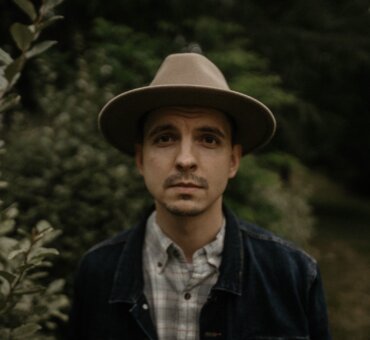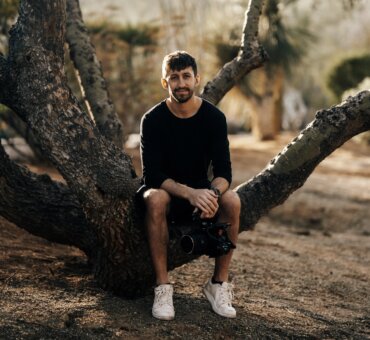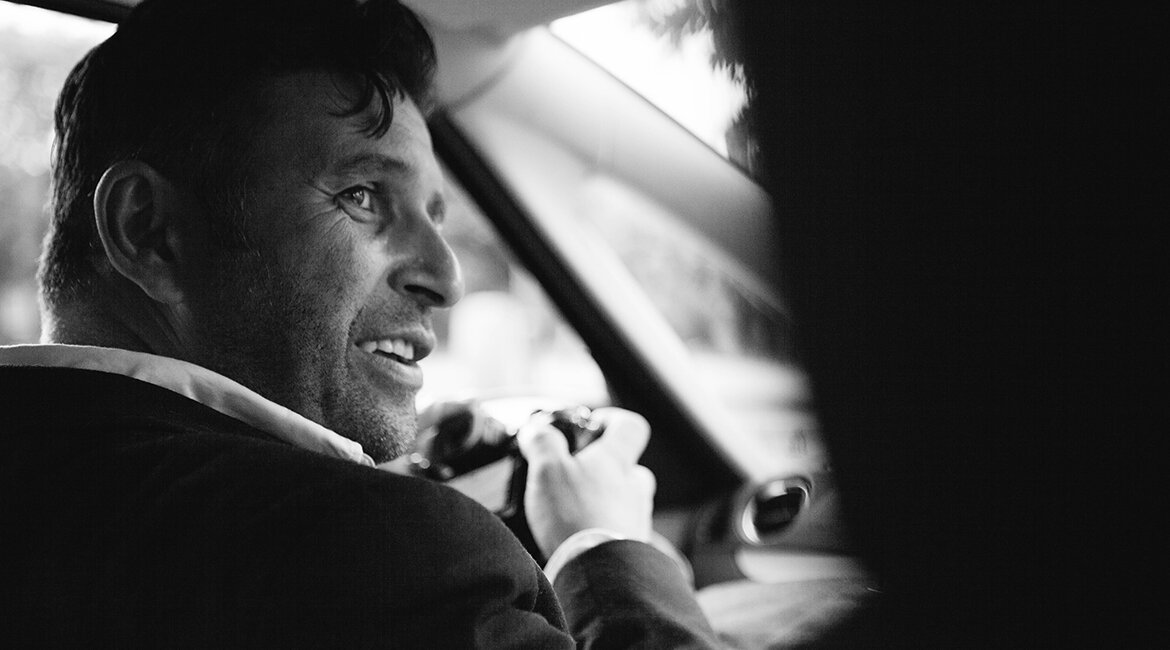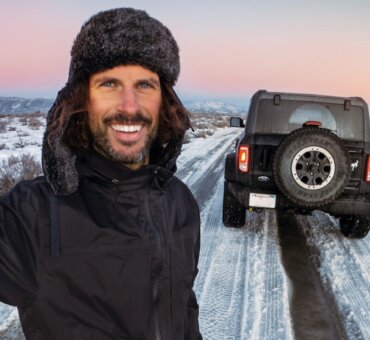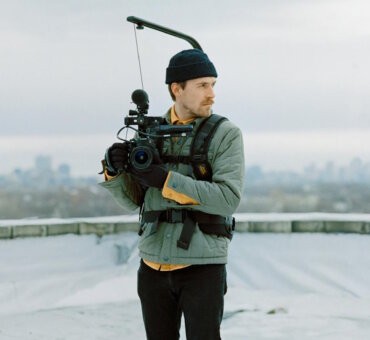Philip Bloom is a 25-year veteran of the filmmaking industry and an inspiration and mentor to thousands of followers online. Philip literally learned his craft under fire, and he has thoughts on everything from video gear to online collaboration to the perfect ratio of gin to tonic. He is both a gent and a genius: This is our conversation with Philip Bloom.

I thought we could start with your story—how you ended up where you are.
Well, my story is quite long. I started 25 years ago. I was 18 and got a job in broadcast news and worked my way up. I became a cameraman and travelled the world. Lots of cool things, lots of not-so-cool things. I was in a very close team, two or three people, and the sorts of situations where you have to trust your life to the other person. 
Literally trust your life?
Absolutely. You’re filming and there are people out there who might shoot you. You’re in a war zone and a reporter says it’s safe to go somewhere, so you trust that reporter. I’ve been asked to cover stories with reporters I didn’t trust, so I turned them down. They were too gung-ho. The company I worked for, Sky, has been lucky. They had their first fatality just this year, which is astonishing considering how many years they’ve been around. So I did all that, and then I did documentaries for Sky, and then I decided I needed new challenges and left. That was almost eight years ago. 
Okay, I’m really curious about this war zone stuff. What kind of team were you working with?
It depends. You have yourself and a reporter, of course. On my first shoot, I had a sound recordist, but never again after that. You have a producer, and then you have a local person known as a “fixer,” somebody who speaks the local language and is basically there to help in every way. Sometimes you have bodyguards. I didn’t want a gun. None of us wanted to carry guns. The only shooting I wanted to do was with my camera. Being in a war zone was never something I enjoyed particularly. Some people get off on it. Some people love being shot at. I found it an amazing experience, but I don’t have that desperate need for adrenaline. I’m happy with a beautiful sunset, a nice drink, nice company.
What’s your drink, out of curiosity?
Well, I like gin and tonics, but I’m getting really, really fussy. Not just about the gin, but also the tonic water. I dated an American bartender, and I had to teach her how to make a gin and tonic because she poured them in equally. I appreciate being generous and all, but even if you want a strong one, it’s like one-third gin, two-thirds tonic. She tried it and said, “Well actually, that’s quite nice.” And I’m like, “Yes!” I’m drinking a vodka tonic right now actually, but it’s 8:00 at night so I’m allowed. 
It’s only 2:00 p.m. here. We’re not allowed yet.
It’s lunchtime. It’ll be fine.
Good point. Okay, so you’re in a war zone. How creative are you trying to be? How much art is going on?
Well, when you’re being shot at, you tend not to be that creative. But those situations are pretty rare. I always tried to make things look as good as possible, no matter what situation I was in. The only time I probably wouldn’t be quite as fussy is when I was being shot at. Then you just grab it and run. Sometimes you leave the camera behind. What you’re always trying to do, though, is focus on the human stories. That’s what I’ve always loved—finding people to tell stories about. When you’re in these situations, you find individuals to focus on rather than anything too grand. It’s always best to tell stories through somebody’s eyes.
What was the most dangerous situation you were in?
Anytime I was being shot at, really.
That makes sense.
And that time we had a bomb dropped on us.
Oh my god. Did you get paid more for this?
Nope. The same as you’d get paid if you were filming an interview with a pop star in a five-star hotel in London. But then again, you don’t want to do it for the money. Then you’ll end up with people out there who don’t want to be there. Danger money is good in some respects, but there is some concern about people doing it just because they’re broke. 

It makes sense why you’d want to transition out of that line of work. Are you moving more toward fiction work now?
I do very little fiction work. I’m still very much based in real stories. Lots of my work is documentary. I think my biggest issue with fiction is that, first of all, I think real life is more interesting than fiction. And second, fiction requires a lot more patience than I have. I just like to see what happens and go with the flow. That’s my attitude. With fiction, you have to be very, very organized, and that’s not me. I’ve shot maybe 10 fiction pieces now, but it’s not where I want to go. I’m moving more into directing documentaries.
I want to talk about education and specifically how you learned your craft and how you’ve turned around and become kind of an educator yourself. Were you formally trained? How do you pick this up?
I never went to any film school. I joined a team and I learned from other people. It was great—really great. It was a great experience because I got to work with some really fantastic people and I got to work with some really, really shit people. Which is great, actually. Working with shit people makes you better. You realize, okay, that’s not how it’s done.
It was a fantastic learning experience. I learned to work really fast, which has been one of the most beneficial things. I sometimes work with people who’ve never had that pressured environment, and it’s just a different mentality. The sort of person who’s never worked in either weddings or news is somebody who will spend three hours lighting something when I would light it in probably 10 minutes. That’s where it gets frustrating. 
How long do you feel like it took you before you really had it down?
I don’t have it down yet. You’re always learning. I’m always learning. There’s so much to learn with every single thing I do. I can do certain things really well, but I could always do them better. I know I can do them better. The moment when I think I can do no better, come over here and punch me in the face. 
Then buy you a gin and tonic.
Only if it’s the right gin and the right tonic.
Got it.
Or else I’ll punch you in the face.
Noted.
But the point is, you can never rest on your laurels. Even when people tell you that you’ve done something good, you have to understand that you’re still learning. I mean, life is like that. Life is a learning experience. We’re always learning from our experiences, and it’s the same way when you’re filming.
On your blog you talk a lot about gear. How important do you think gear is when it comes to filmmaking?
I don’t think it’s ever going to help you tell your story. When it comes down to it, I just want a camera that’s not too big and will shoot really good images. One that’s really easy to use. That’s the most important thing to me. I don’t want a camera to get in the way. For 17 years I had just a camera, a tripod, an audio recorder, and three lights. I never had any toys. I learned to be creative like that. I think it’s important to limit yourself when you’re shooting. If you have all these distractions, it’s going to make you less creative. You’ll end up making things that are really quite superficial rather than creative.
I think a good example would be something like Terrence Malick’s work. He’s a big fan of natural lighting. That doesn’t mean he’s not lighting; it means he’s harnessing it. Look at an old film like Rosemary’s Baby by Roman Polanski. It was shot with one lens, a 25 millimeter. That discipline, shooting with one lens, is actually one of the most important things. I think people would be shocked that a Hollywood movie could be shot with a single prime lens.

A lot of people think they need to use lots of lenses, but I’m a big fan of taking just one lens. If you need to get a closer shot, you move closer. If you need to get a wider shot, you move back. Look at the composition. That’s the most important thing. Just put your camera on your tripod and compose something beautiful. Let the movement take place within the frame. 
You’ve been in the industry for a while now. How have you seen it change, and where do you think it’s going?
I think the online collaboration between people from different places is fantastic. I think the affordability of cameras is fantastic. It does mean, however, that a lot more people are out there competing for work. So you need to be good, you need to be confident, and you need to have the ability to work in a business—to actually make money from this. Because as much as some people would say, “Oh, I’m not in it for the money,” you still have to live in a society and pay the bills. If I did only the stuff that I want to do, I would not be living in my house right now.
We have to work. We have to earn money. And we have to do jobs which we don’t necessarily want to do so we can do the jobs that make us really happy. Something that I preach all the time is that, yes, you aren’t going to shoot stuff you don’t want to do; but in your free time, shoot stuff that’s going to challenge you. Then bring that stuff that challenges you into the stuff that’s more mundane—make it interesting.
It’s never been a more interesting time to be in this business. And it is only going to get better. It’s a revolution, and we’re writing it. I think that’s absolutely fantastic. We’re never going to run out of stories to tell.




































































